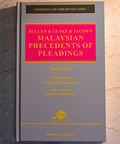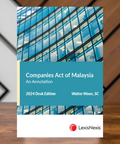




Elections Laws (As at 15th March 2013)
Elections Laws
Detailed Contents Of Elections Laws (As at 15th March 2013) :
Election laws refer to the set of regulations and guidelines that govern the conduct of elections in a country. In this article, we will look at the election laws as of 15th March 2013 in detail.
Constitution of India: The Constitution of India is the supreme law of the land and provides for the conduct of free and fair elections in the country. The Constitution provides for the establishment of the Election Commission of India (ECI) and lays down the powers and functions of the ECI.
Representation of People Act, 1951: The Representation of People Act, 1951 is the main legislation that governs the conduct of elections in India. This Act provides for the qualifications and disqualifications of candidates, the registration of political parties, the conduct of elections, and the resolution of disputes related to elections.
Conduct of Elections Rules, 1961: The Conduct of Elections Rules, 1961 lays down the detailed procedures for the conduct of elections in the country. This includes the procedures for the nomination of candidates, the preparation of electoral rolls, the polling process, and the counting of votes.
Model Code of Conduct: The Model Code of Conduct is a set of guidelines issued by the Election Commission to ensure free and fair elections. This code lays down the standards of behavior for political parties and candidates during the election period.
Representation of the People (Amendment) Act, 2002: This Act introduced electronic voting machines (EVMs) in the country to replace the traditional paper ballot system. This Act also made it mandatory for political parties to submit their annual financial statements to the ECI.
Right to Information Act, 2005: The Right to Information Act, 2005 provides for the right of citizens to access information held by public authorities. This Act has been used to increase transparency in the election process by making it easier for citizens to access information related to elections.
In conclusion, these are some of the key election laws in India as of 15th March 2013. These laws are essential to ensure that elections in the country are conducted in a free and fair manner, and that the will of the people is reflected in the outcome of the elections.
Elections Laws (As at 15th March 2013) Contains:
Elections Act 1958 (Act 19)
Election Offences Act 1954 (Act 5)
Election Commission Act 1957 (Act 31)
Elections (Control of Motor Vehicles and Vessels) Regulations 1959
Elections (Conduct of Elections) Regulations 1981
Elections (Registration of Electors) Regulations 2002
Elections (Postal Voting) Regulations 2003
Elections Act 1958 (Act 19)
- An Act providing for elections to the Dewan Rakyat and to the Legislative Assemblies of the States
Election Offences Act 1954 (Act 5)
- An Act to prevent electoral offences and corrupt and illegal practices at elections; to provide for the establishment of enforcement teams and for matters connected therewith; to provide for the appointment of election agents and to control election expenses; and to provide for election petitions.
Election Commission Act 1957 (Act 31)
- An Act to make provision for the remuneration, privileges and protection of members of the Election Commission, for the punishment of offences in connection with the Election Commission, and for other matters connected therewith.

Latest releases
Get your copy today!
































